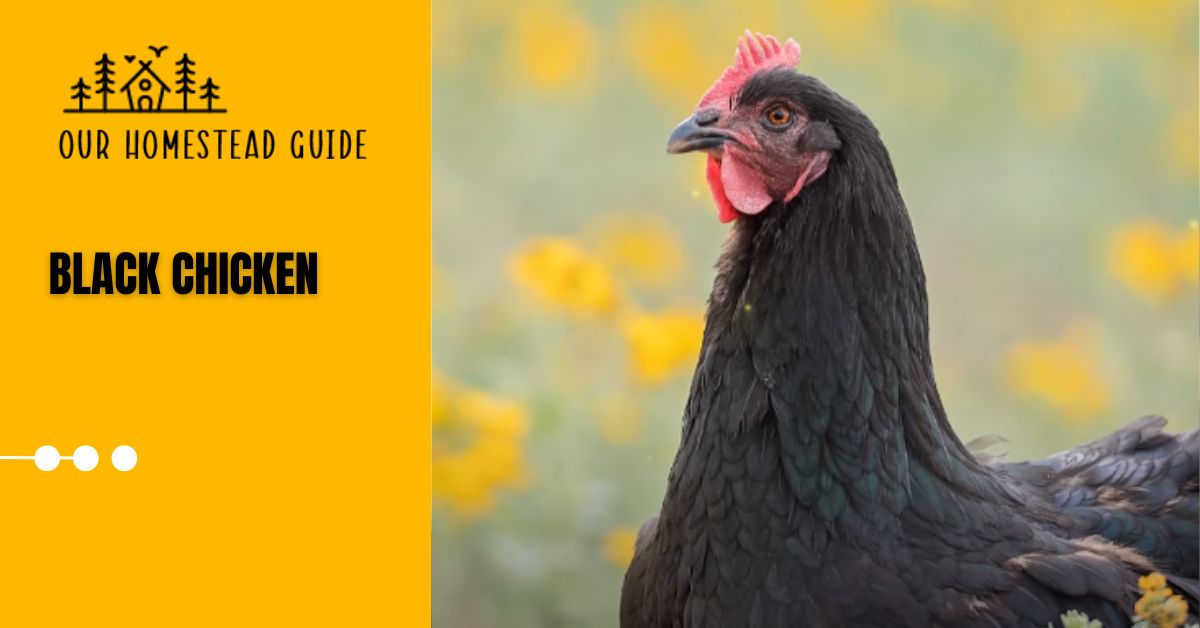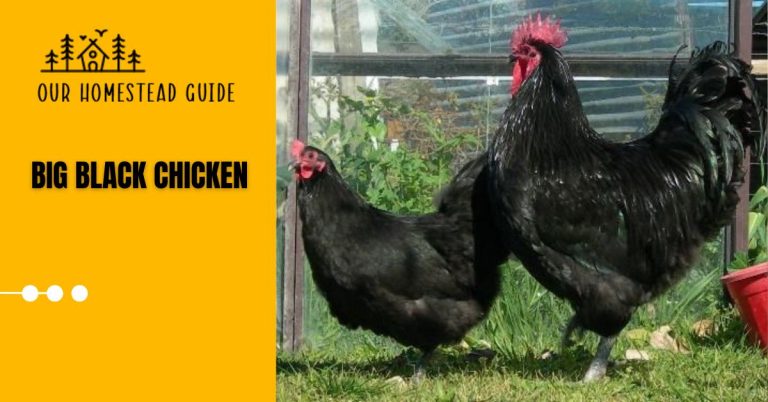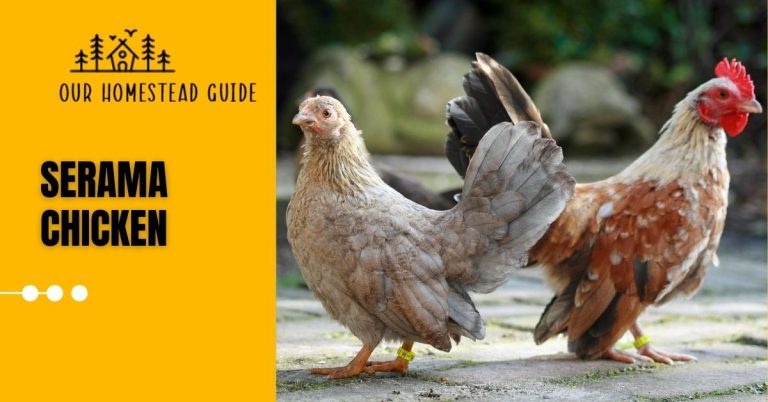Black Chicken: Different Types, Traits, Benefits, and Care
Black chicken is a variety of chicken known as a Silkie chicken. The Silkie chickens are white-feathered with black meat and bones. One may easily spot silkie chickens in Southeast Asia, China, and India. Because they are usually raised outdoors, black chickens have a little gamier flavor than other common kinds.
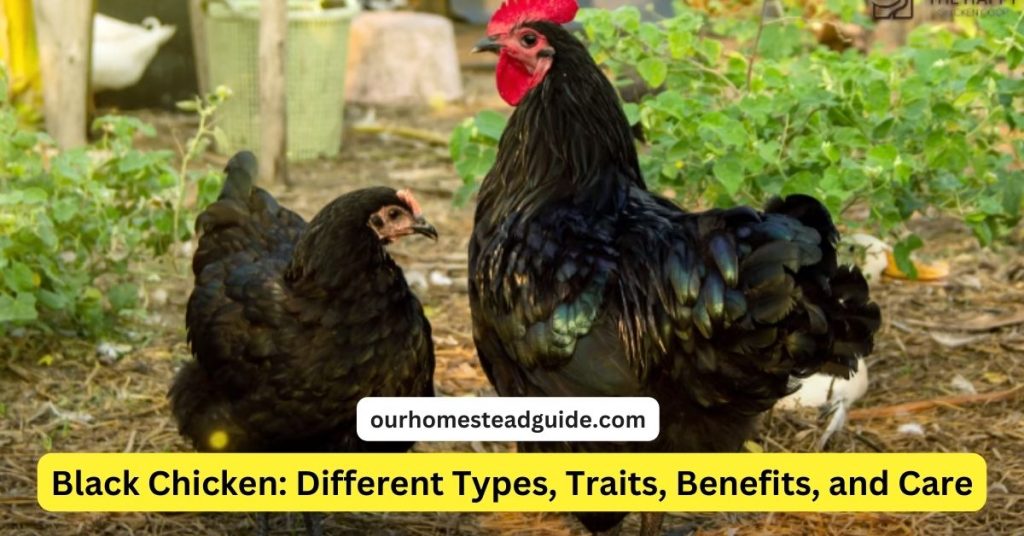
Black Chicken Different Types
| Breed Name | Origin/Country of Origin | Characteristics |
|---|---|---|
| Ayam Samani | Indonesia | Black feathers, skin, and internal organs |
| Silky | Unknown | Black-skinned, cute, and cuddly |
| Cochin (Pecking or Coaching) | Unknown | Cuddly nature, frizzling tendencies |
| Australorp | Australia | Friendly, prolific layer, large brown eggs |
| Orpington | England | Dual-purpose, calm, and docile temperament |
| Jersey Giant | United States | One of the largest breeds, gentle, lays extra-large eggs |
| Minorca | Spain (Menorca) | Endangered, flighty, lays large white eggs |
| Brakel (Breda) | Holland | Feathered feet, vulture hawks, slow-growing |
| Swedish Black Hen (Svart Hona) | Sweden | Melanistic, rare, lays small white or cream-tinted eggs |
| La Fleche | France (La Fleche) | Ancient fowl, outstanding flesh, distinctive comb |
| Langshan | China | Large bird, black shimmering plumage, lays dark brown eggs |
| Crevicore | Unknown | Critically endangered, wild crests, peaceful |
| Java | United States (American breed) | Slow growth, may have black and white feathers |
| Sumatra | Indonesia | Kept for exhibition or ornamental purposes |
Black Chicken Traits
“Black Chicken” is a word that is frequently used to refer to chickens that have black feathers, rather than a specific breed of chicken. There are several breeds of chicken with black plumage, and each breed has unique traits. The following chicken breeds are well-known for having feathers that are mostly black or black:
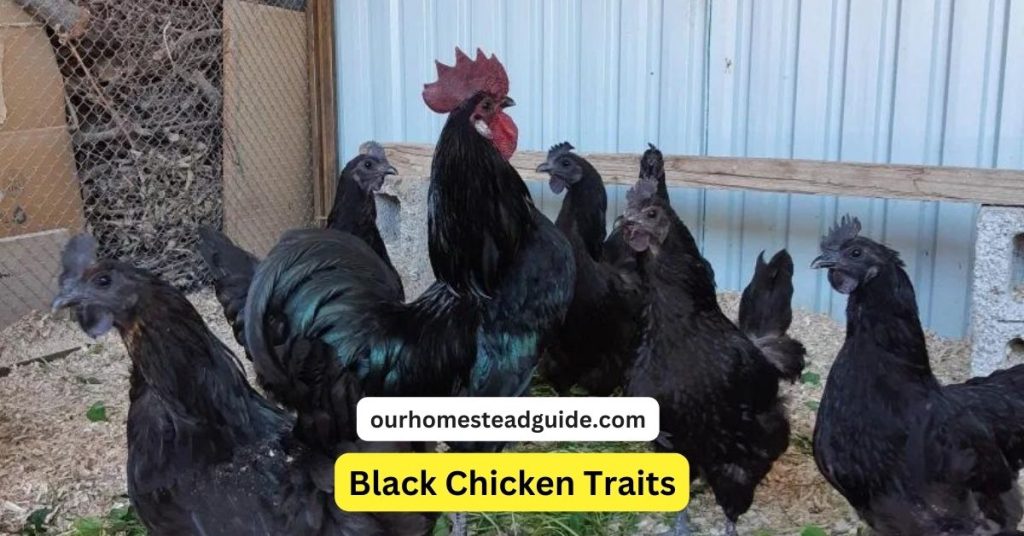
Australorp: The jet-black feathers of Australians have a greenish tint to them. They are a breed recognized for their ability to produce both meat and eggs. The world record for the most eggs laid by a single hen in a year is held by Australorps.
Jersey Giant: One of the biggest kinds of chickens is the Jersey Giant, which is available in blue, white, and black colors. The black Jersey Giants are distinguished by their peaceful and kind disposition and glossy black feathers.
Ayam Cemani: An unusual breed from Indonesia called Ayam Cemani is distinguished by having all black feathers, including the skin, muscles, and internal organs. Their enigmatic look makes them extremely valuable.
Silkie: A kind of bantam known as silkies is distinguished by its silky, fluffy feathers. They have black skin and bones in addition to their distinctive feather texture, which makes them stand out despite their range of hues, including black.
Langshan: Large breeds with black feathers and feathered legs are called langshans. They are excellent dual-purpose birds and are renowned for their placid disposition.
Specific characteristics might differ significantly between different birds and breeds. Generally speaking, black chicken characteristics might include:
Hardiness: Numerous black chicken breeds are resilient and climate-adaptable.Characteristics: Although black chicken breeds can vary widely in temperament, some are renowned for being amiable and submissive.
Production of Eggs: Black hens can lay quality eggs, depending on the breed.
Quality of Meat: There are black chicken varieties that are grown for their meat, and the flesh from these birds is frequently regarded as tasty.
Distinctive Look: Because of their dark plumage, black chickens frequently have an eye-catching and distinctive look.
Black Chicken Benefits
The phrase “black chicken” can apply to several varieties with black feathers, yet each one might have certain advantages. The following are some possible advantages of black chicken breeds:
Distinctive Appearance:
Ayam Cemani and other black chickens are renowned for having a stunning and distinctive look. For those who enjoy poultry art, their jet-black feathers, black skin, and even internal organs may be visually stunning.
Cultural Significance:
Black chickens may have particular meanings or be prized in certain cultures for their rarity and value. For instance, Ayam Cemani chickens are highly valued in Southeast Asian and Indonesian cultures, where they are frequently connected to symbolism and mystical beliefs.
Hardiness:
Certain black chicken varieties, such as the Australorp, are renowned for their resilience and capacity to adjust to many weather conditions. In some areas of the world, backyard chicken owners may find this advantageous.
Dual-Purpose Qualities:
Some black chicken breeds are regarded as dual-purpose breeds, such as Jersey Giants and Australorps. As a result, they may be used to produce both meat and eggs, which is a useful feature for flock owners who need versatility.
Egg Production:

A reliable source of eggs is possible if you choose a black chicken breed like the Australorp, which is renowned for producing a lot of eggs. For people or families looking for a reliable source of fresh eggs, this might be helpful.
Meat Quality:
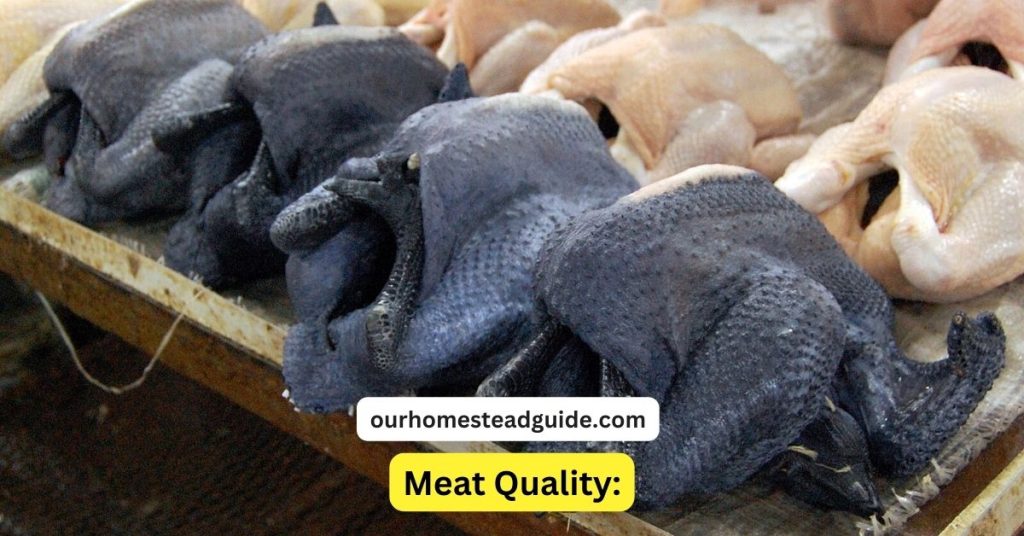
Some black chicken breeds are grown for their meat, and people find their dark flesh to be tasty. Though it’s a matter of taste, some individuals find black chicken flesh to have a nice flavor and texture.
Friendly Temperament:
Some black chicken species, such as the Jersey Giant, are renowned for their composure and friendliness. For families or individuals looking for gregarious chickens, this may make them entertaining pets.
Broodiness:
Certain black chicken breeds may be broody, or incline to sit on eggs until they hatch. Those who are interested in rearing chicks naturally and without the use of artificial incubation may find this useful.
Black Chicken Care

Though there are a few particular considerations, caring for black chickens is similar to caring for any other breed of chicken:
Housing:
- Give your hens a haven from the weather and predators with a sturdy coop. The amount of hens you have will determine the size of the coop, but a general rule of thumb is four square feet per bird.
- Make sure there is adequate ventilation in the coop to avoid ammonia build-up from droppings.
- Black hens often like dark areas to lay their eggs, so look for nesting boxes that are isolated and gloomy.
Feeding:
Provide a well-rounded diet for your hens by feeding them commercial chicken feed along with fresh produce, herbs, and fruits. Clean water must always be available to chickens.
Black hens could require somewhat different diets than other breeds, therefore it’s a good idea to receive specialized advice from a poultry specialist or your veterinarian.
Bathing:
Although they don’t require frequent washing, black hens might benefit from a mild bath whenever they become unclean. Make careful to rinse them well after using a gentle shampoo.
Sun exposure:
On hot days, make sure black hens have access to cold water and shade as they are more susceptible to the sun’s heat than other breeds.
Other care:
Give your hens lots of chances to take dust baths. Giving their feathers a dust wash keeps them healthy and clean. Regularly trim your hens’ toes and beaks to keep them from becoming too long. Check your hens frequently for symptoms of disease or harm.
Here are some more pointers for taking good care of your black chickens:
Compared to other kinds, black hens are more prone to frostbite, so make sure to provide them additional care throughout the winter.
Like any other breed of chicken, black chickens may be equally devoted and affectionate friends. If you spend some time getting to know your hens, you’ll be rewarded with a devoted and kind feathered companion.
Average Body Weight
Cock: 2 kg
Hens: 1.5 kg.
Annual egg production: 80.
The eggs are light brown.
Average egg weight: 46 gms.
Medicinal Properties
Black chickens are famous for having unique black feathers, skin, muscles, bones, and even internal organs. One breed in particular that goes by this name is called Ayam Cemani. Although there is no scientific study on the medical benefits of Ayam Cemani or other black chicken breeds, certain traditional wisdom and anecdotal evidence point to possible advantages.
It’s crucial to remember that these assertions lack scientific backing and require more investigation to be supported. The following are some possible health benefits linked to black chickens.
Packed with Nutrients: It is said that Ayam Cemani chickens are high in specific minerals, such iron and protein, which are critical for blood health and muscular growth, respectively.
Herbal Remedies: Herbal soups made with black-boned chicken (which isn’t always Ayam Cemani) are utilized in traditional Chinese medicine. It’s said that the soup gains additional therapeutic benefits from the inclusion of black bones.
Properties of Antioxidants: Proponents assert that a higher melanin content—which may have antioxidant qualities—is the cause of the black coloring of Ayam Cemani chickens. Antioxidants support the body’s defense against oxidative stress.
Cultural Significance and Symbolism: Black chickens have symbolic meaning and are thought to bring luck, wealth, and even spiritual protection in many cultures. The beneficial mental and emotional benefits of such ideas can enhance general well-being, even if they are not explicitly medical.
What Does a Black Chicken Taste Like?
It’s common to compare the flavor of a black chicken, such as the Ayam Cemani type, to that of other chicken breeds. The taste of the meat is not greatly impacted by the color of the chicken’s muscles, skin, or feathers. Dark meat from Ayam Cemani birds is well-known, and it can be a little tougher and leaner than from certain other popular chicken breeds.
The nutrition of the chicken, the method of cooking, and the addition of marinades or seasonings all affect the flavor of the flesh. Ayam Cemani meat is perceived by some to have a little gamier flavor; nevertheless, individual experiences may differ and taste preferences are subjective.
It is advised that you prepare Ayam Cemani chicken according to your tastes and preferred ways if you would like to give it a try. As with any chicken, using the right cooking methods is crucial to a tasty and secure meal.
Assess Availability and Rarity
Take the chosen breed’s availability into consideration. Certain breeds are readily available from private dealers or hatchery locations, while others could be harder to find and uncommon.
Conservation Consideration
Consider how eager you are to help with conservation initiatives. Raising black chickens can help preserve their genetic variety, but keep in mind that certain kinds are highly endangered.
Define Purpose
Ascertain whether the goal of keeping hens is to produce eggs, for aesthetic purposes, or for both. Select a breed that supports your objectives.
Consider Personality Traits
Remember the breed’s temperament that you have selected. Think of traits like sociability, docility, and preferred methods of interaction. This aids in choosing a breed that aligns with your tastes.
Evaluate Your Backyard Setup
Examine your backyard arrangement to make sure it satisfies the breed’s preferences. Take into account elements like space needs, foraging behaviors, and confinement tolerance.
Prepare for Specific Needs
Be ready for the unique requirements of black hens. This entails giving the selected breed proper housing, a healthy diet, and medical attention.
General Chicken Care Education
Learn about basic chicken care procedures if you are new to raising hens. Find more about feeding regimens, coop construction, and standard medical treatments.
Connect with Local Breeders
Make connections with nearby breeders or poultry lovers to learn more about rearing black chickens and to get guidance. Networking can offer helpful information and assistance.
Monitor Regularly
Regularly check on the health and welfare of your hens. Frequent inspections guarantee that your hens flourish and help detect any problems early.
Make Informed Choices
The eleventh item on the list highlights the significance of making well-informed decisions based on variables including breed availability, conservation initiatives, and individual preferences.
Conclusion and Engagement
If you enjoy the video, please consider subscribing to the YouTube channel and the website for more materials. Continue to participate in the community to discover new things.
Most Frequently Asked Questions!
Q1: What makes Ayam Cemani chickens black?
The hyperpigmentation caused by fibromatosis, a hereditary disease, is the reason Ayam Cemani hens are black. Their skin, muscles, bones, internal organs, and feathers all become black as a result of this illness.
Q2: Are there any health benefits associated with black chickens?
There is little scientific proof to back up traditional ideas about the health advantages of Ayam Cemani chickens, such as their high nutritional content and antioxidant capabilities. Additional investigation is required to verify any possible health advantages.
Q3: Can you eat black chicken?
Black chicken may indeed be consumed, and Ayam Cemani hens are produced for both meat and decoration. Many people compare the flavor to that of other chicken breeds, while other people think it tastes a little gamier.
Q4: Are Ayam Cemani chickens rare?
Indeed, Ayam Cemani chickens are prized for their distinctive look and are said to be unusual. They are distinguished from other chicken breeds by their unique black coloring, which is their origin. They are native to Indonesia.
Q5: Do black chickens have any cultural significance?
Yes, in many cultures, black chickens—including Ayam Cemani—have cultural importance. In many cultures, they are occasionally connected to spiritual beliefs, luck, and symbols.
Q6: How do you care for Ayam Cemani chickens?
Like other chicken breeds, Ayam Cemani chicks need comparable maintenance. For their health, well-balanced food, suitable housing, and frequent veterinarian treatment are necessities.
Q7: Can Ayam Cemani chickens be kept as pets?
Ayam Cemani hens are suitable for pet ownership. On the other hand, prospective owners must to think about local laws of chicken ownership and their particular demands.
Most Frequently Asked Questions!

